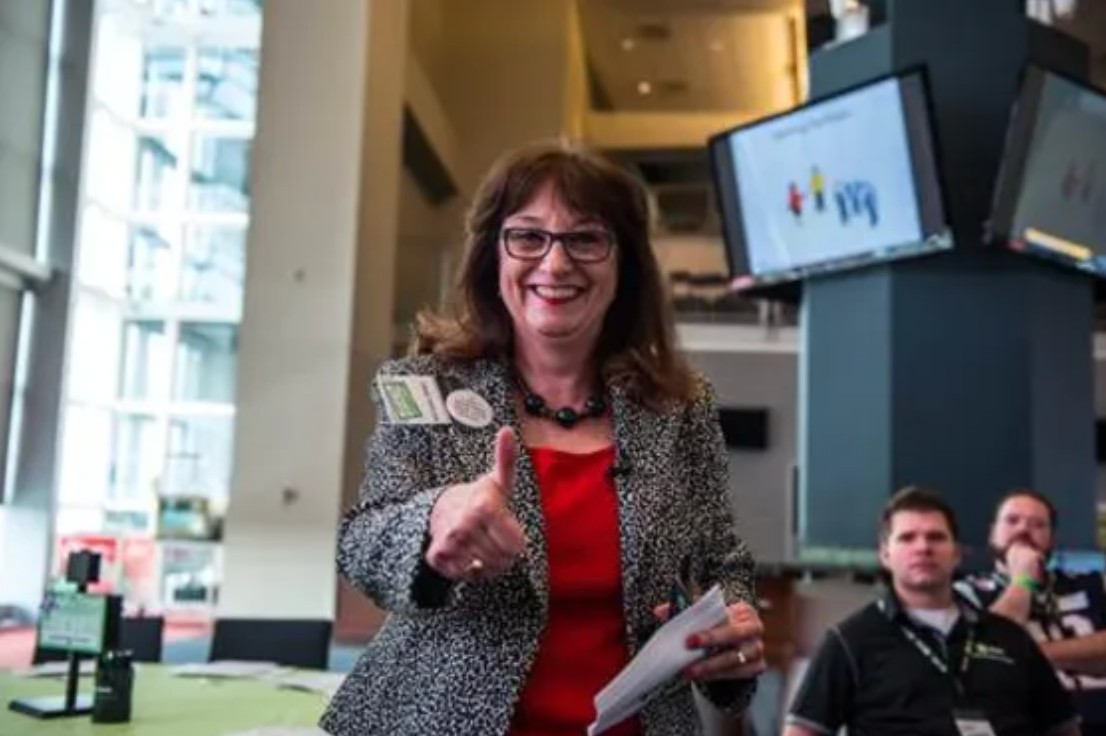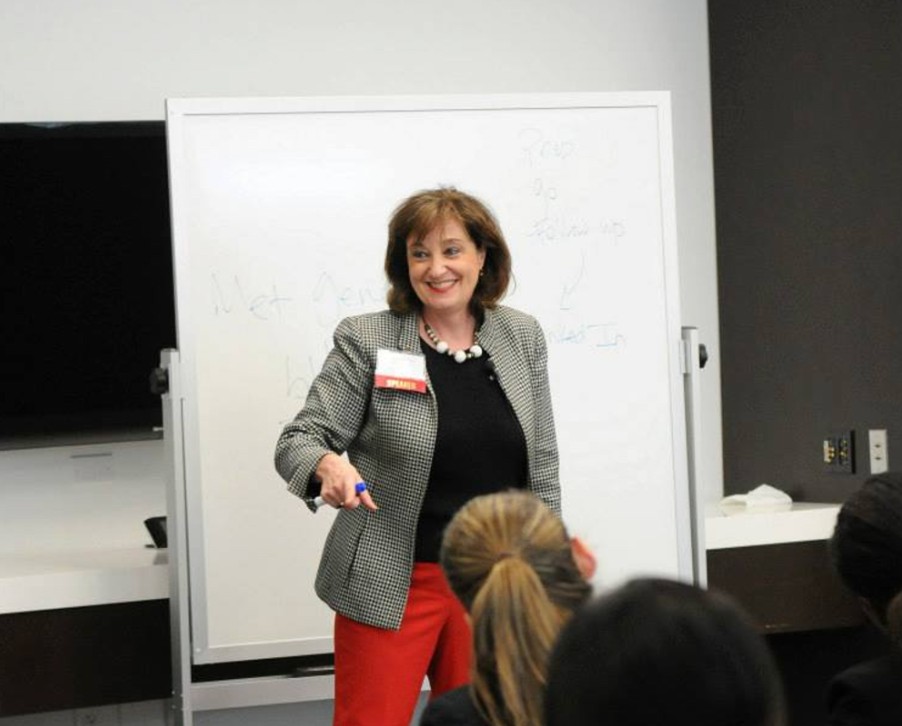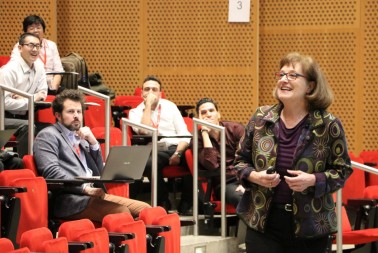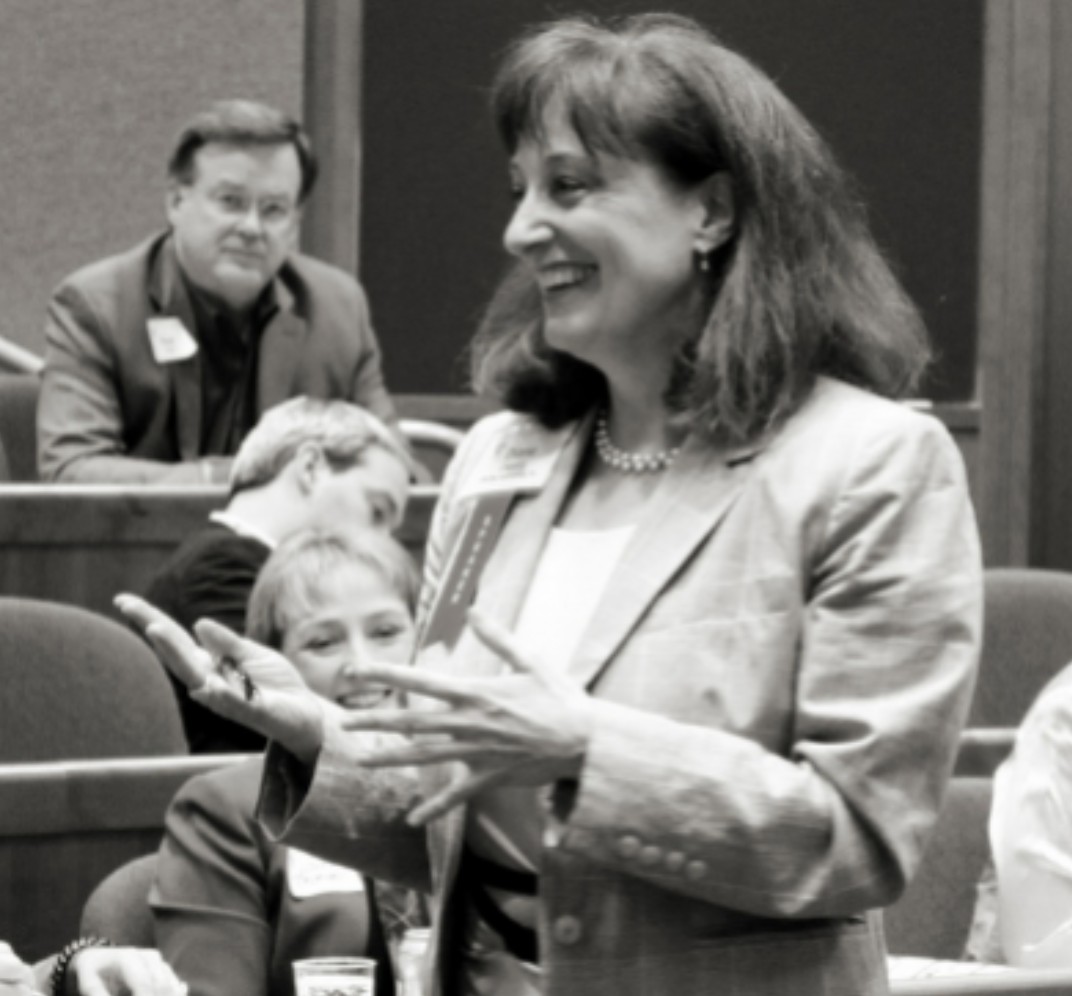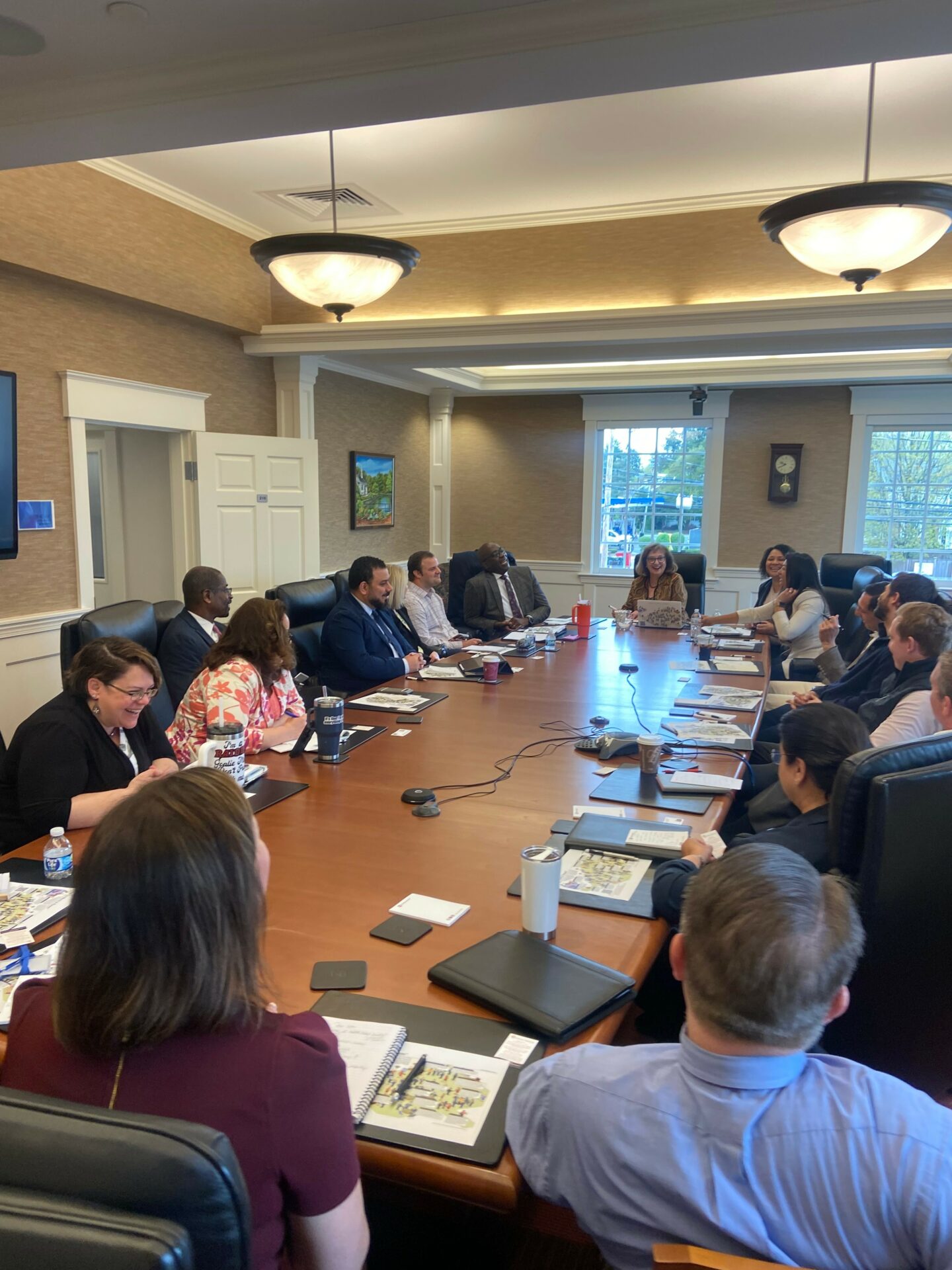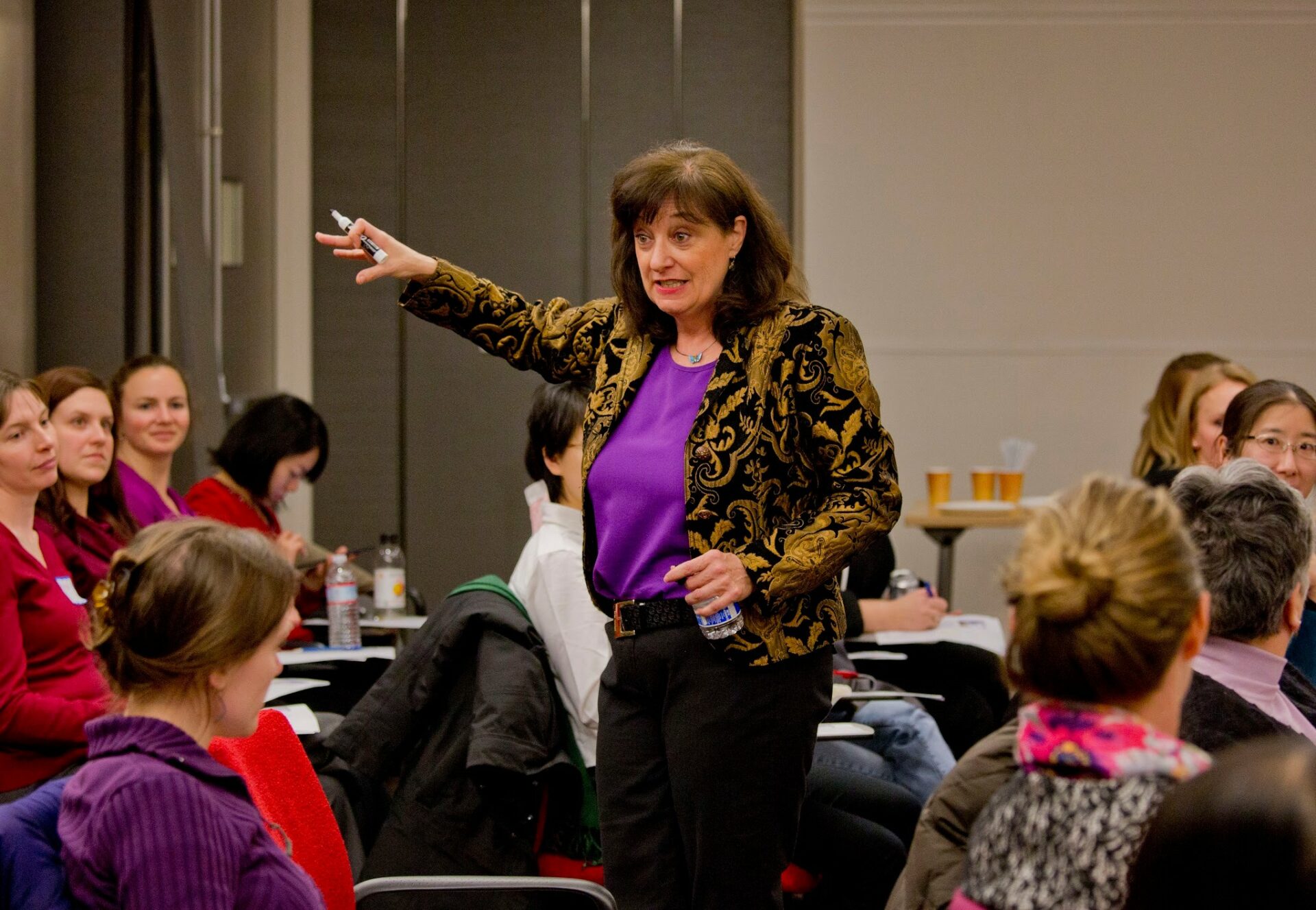We recently connected with Diane Darling and have shared our conversation below.
Diane, thank you so much for joining us today. Let’s jump right into something we’re really interested in hearing about from you – being the only one in the room. So many of us find ourselves as the only woman in the room, the only immigrant or the only artist in the room, etc. Can you talk to us about how you have learned to be effective and successful in situations where you are the only one in the room like you?
I’ll start by saying that it doesn’t happen as often as it used to, but there are still times when I walk into a room and I’m the only woman there. It’s always interesting to see the dynamics at play, like when men pretend they’re playing golf or talk about golf in a way that feels like a club I’m not part of. It makes me chuckle because you’d never see women doing that at a networking event.
When I’m in a room full of men, all wearing dark or gray suits, I know I have two choices: I can either feel intimidated—which is totally normal and okay to acknowledge—or I can use it as a chance to push my comfort zone and engage with people. I usually choose the latter.
One of the things I do to break the ice is go to the bar where people are standing in line for drinks. It’s a more relaxed setting, and I use that opportunity to put my hand out and introduce myself. Fun fact: I learned that it’s proper for a woman to extend her hand first. I found this out from a British person who mentioned that, just as no one would reach out to shake hands with the Queen without her permission, the same etiquette applies in general. So, when I’m at an event, I make sure to extend my hand to start the conversation.
I don’t say, “Nice to meet you,” because as a public speaker, I’ve learned that many people feel like they’ve met me even if I haven’t formally met them. Instead, I say, “Nice to see you,” and ask them what brought them to the event. This gets people talking, and soon there’s a small group conversation happening.
I also leverage the event staff. They know who’s who, so I make sure to introduce myself and tell them who I’m interested in meeting, whether it’s attorneys, managing partners, or anyone else. This approach helps me find connections I might not have made otherwise.
Ultimately, I’ve found that when I’m the only one in the room who looks like me, it can feel daunting, but it’s also an opportunity. It’s a chance to meet new people, build my confidence, and sometimes even stand out in a good way. I think it’s important not to limit myself to sticking only with other women, even though it’s tempting. Instead, I try to engage with everyone and use the opportunity to build a diverse network.
Appreciate the insights and wisdom. Before we dig deeper and ask you about the skills that matter and more, maybe you can tell our readers about yourself?
Sure! What I do is work with really smart people who might not be naturally gifted with people skills. These are the folks who are brilliant in math, architecture, engineering, science—you name it—but sometimes struggle with communication or connecting with others. My job is to help them appreciate the unique talents they have and understand that, while they might be gifted in technical fields, it’s the ability to communicate that will allow them to fully leverage their intelligence in both their personal and professional lives.
I do this through a combination of workshops, speaking engagements, and one-on-one coaching. It’s a mix that allows me to reach a wide range of people, from groups to individuals. I find it incredibly exciting when someone has that “aha” moment, realizing that their intelligence alone might not be enough to succeed; they need those people skills too. It’s like watching a light bulb go off, and it’s really rewarding.
What’s also interesting is when people understand that it’s okay not to be gifted in everything. I always use the example that I’ll never sing like Adele, and that’s okay. But what I can do is make someone feel like they’ve had a good day, and that’s a talent that’s just as important in its own way.
As for what’s new, I’m expanding my coaching programs to reach more people. I’m offering new workshops that focus on bridging the gap between technical skills and interpersonal communication. I’m also working on a book that compiles some of the best lessons I’ve learned from my clients and from my own journey, which I’m excited to share with a broader audience.
Ultimately, my goal is to help smart people connect with others on a human level, so they can make the most of their talents. It’s a blend of technical understanding and emotional intelligence, and it’s a journey I feel privileged to be part of.
If you had to pick three qualities that are most important to develop, which three would you say matter most?
The three qualities that have been most impactful for me are curiosity, authenticity, and a commitment to lifelong learning.
Curiosity has always been a driving force in my life. It’s what keeps me asking questions and seeking new experiences. I believe that staying curious allows you to discover opportunities that others might overlook. When you’re curious, you tend to go deeper into topics and learn things that can later become invaluable.
Authenticity is another key quality. I place a high value on being genuine and surrounding myself with authentic people. It’s easy to spot when someone is being fake, and dealing with those types of people can be frustrating. But when you are true to yourself, you naturally attract others who appreciate you for who you are.
The third quality is being a lifelong learner. There’s rarely a day when I’m not learning something new, and that mindset has been critical in my journey. Whether it’s big or small, like learning how to use a new feature on my Apple Watch to find my phone, the process of learning keeps me engaged and makes each day more fulfilling.
My advice to those early in their journey is to embrace these qualities. For curiosity, stay open to new experiences and never be afraid to ask questions. The more you explore, the more you learn.
For authenticity, be yourself and don’t try to fit into a mold. People respect honesty, and it’s easier to build genuine relationships when you’re being true to yourself.
As for lifelong learning, make it a habit to learn something every day. It doesn’t have to be monumental—sometimes it’s the small lessons that bring the most joy.
Lastly, if you’re working remotely, find opportunities to connect with people in person. Being around others allows you to observe and learn in ways that remote work can’t always offer. You might catch someone doing something in a way you’d never thought of, and those moments of observation can be incredibly valuable in your development.
So stay curious, be authentic, and never stop learning. These qualities have served me well, and I believe they can do the same for anyone on their journey.
Before we go, any advice you can share with people who are feeling overwhelmed?
When I feel overwhelmed, my first instinct is to simply let myself feel that way. Fighting against the feeling often just makes it worse, so I try to lean into it. Sometimes, I’ll sit on the floor or on the couch and just admit to myself, “I’m overwhelmed.” It’s like giving myself permission to feel whatever I need to feel.
To break the cycle, I’ll watch a funny TV show for about half an hour, just to lighten the mood and create a bit of distance from the stress. Laughter can be a great antidote to feeling overwhelmed, and it provides a break from the constant pressure to be in “work mode.”
Another strategy I use is to start small. For example, I might have a suitcase that’s been sitting on the floor for a week, still half-packed. Instead of tackling everything at once, I focus on that one small task. Even if I don’t know where I’m going to store that suitcase, I can at least start by unpacking it. It’s about taking manageable steps to reduce the chaos around me.
I think it’s important to allow yourself to be in the chaos without always trying to fix it. There’s a lot of pressure to have everything under control, but sometimes it’s okay to just be. Just let yourself exist in that state of overwhelm without rushing to change it. It’s not about wallowing—it’s about accepting that sometimes life is chaotic, and that’s perfectly normal.
So, my advice to anyone feeling overwhelmed is to give yourself permission to feel that way. Take small steps to alleviate the stress, like watching a comedy or tackling a small task. And remember, it’s okay to just be in the chaos sometimes. You don’t always have to be in control.
Contact Info:
- Website: https://www.dianedarling.com/
- Instagram: https://www.instagram.com/dianedarlingspeaker/
- Facebook: https://www.facebook.com/DianeDarlingSpeaker
- Linkedin: https://www.linkedin.com/in/dianedarling/
- Twitter: https://twitter.com/DianeDarling
- Youtube: https://www.youtube.com/@DianeDarlingSpeaker
